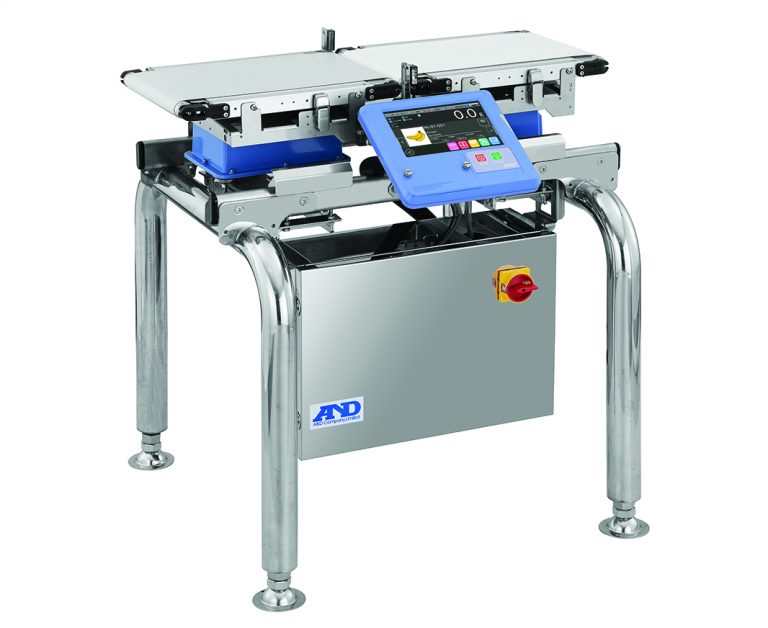In the intricate dance of modern food production, precision and accuracy are not just desirable qualities; they are non-negotiable necessities. Amidst this backdrop, checkweighers emerge as unsung heroes, silently but significantly contributing to the efficiency, quality, and safety of the food industry.
Understanding Checkweighers:
At its core, a checkweigher is a sophisticated weighing machine designed to ensure that products meet predetermined weight specifications. These machines come in various types and sizes, tailored to accommodate the diverse needs of different food processing environments. From high-speed production lines in large-scale factories to smaller operations focusing on specialty products, the versatility of checkweighers makes them adaptable to a wide range of applications.
Quality Control and Compliance:
One of the primary functions of checkweighers is quality control. In the food industry, consistency is paramount. Whether it's a bag of chips, a box of chocolates, or a package of frozen vegetables, consumers expect uniformity in the products they purchase. Checkweighers play a crucial role in maintaining this uniformity by ensuring that each item meets the specified weight requirements. This not only enhances customer satisfaction but also helps food manufacturers comply with regulatory standards and avoid costly penalties or recalls.
Efficiency and Waste Reduction:
In addition to upholding quality standards, checkweighers contribute to operational efficiency and waste reduction. By accurately weighing and sorting products, these machines minimize overfilling and underfilling, optimizing raw material usage and reducing product giveaway. This not only translates to direct cost savings for manufacturers but also aligns with sustainability initiatives by reducing excess waste in the production process.
Real-time Monitoring and Data Insights:
Modern checkweighers are equipped with advanced technology that goes beyond simple weight measurement. Many models feature real-time monitoring capabilities, allowing operators to track production metrics such as throughput, reject rates, and batch consistency. This real-time data empowers decision-makers to identify trends, diagnose potential issues, and make informed adjustments to improve overall production efficiency and product quality.
Integration with Automation and Industry 4.0:
The evolution of checkweighers mirrors the broader trend of automation and Industry 4.0 integration in the food industry. Today's check weighing systems often operate as part of interconnected networks, seamlessly integrating with other automated processes such as filling, sealing, labeling, and sorting. This interconnectedness not only streamlines production workflows but also facilitates data exchange and analysis, paving the way for predictive maintenance, proactive quality control measures, and enhanced traceability throughout the supply chain.
Food Safety and Consumer Confidence:
Beyond operational efficiency and regulatory compliance, checkweighers play a vital role in ensuring food safety and bolstering consumer confidence. In an era where foodborne illnesses and contamination risks are constant concerns, the ability to accurately weigh and inspect products for anomalies or foreign objects is paramount. Checkweighers equipped with advanced detection systems can flag irregularities, prompting immediate intervention and preventing potentially harmful products from reaching consumers.
Future Trends and Innovations:
Looking ahead, the trajectory of checkweighers in the food industry is marked by continuous innovation and technological advancements. From the integration of artificial intelligence for predictive analytics to the development of more compact and adaptable designs, manufacturers are constantly pushing the boundaries to enhance the capabilities and efficiency of check weighing systems. Additionally, as sustainability and environmental consciousness take center stage, expect to see further emphasis on energy-efficient designs and materials in future checkweigher models.
Conclusion:
Checkweighers stand as indispensable assets in the modern food industry, contributing to quality control, operational efficiency, waste reduction, data-driven decision-making, food safety, and consumer confidence. As technology continues to evolve and industry standards evolve, these versatile machines will remain at the forefront of ensuring that every product that reaches the market meets the highest standards of quality, safety, and consistency, thus playing a vital role in shaping the future of food production and consumption.





Comments